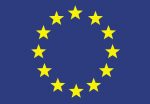Location
Austria is situated in central Europe. Its size is 83.878,99 square kilometres. Compared to other European countries, it is rather small. Austria shares borders with Germany, the Czech Republic, Slovakia, Hungary, Slovenia, Italy, Switzerland and Liechtenstein. It is often considered as the “Republic of the Alps”. The country is divided into nine provinces: Burgenland (Eisenstadt), Carinthia (Klagenfurt), Lower Austria (St.Pölten), Upper Austria (Linz), Salzburg (Salzburg), Styria (Graz), the Tyrol (Innsbruck), Vorarlberg (Bregenz) and Vienna that is a province and the capital city of Austria.
Since 1995 Austria has been a member of the European Union (EU), and part of the European Economic Area (EEA) since 1994.
Climate
Austria has a typical central European transitional climate (warm summers, cold winters and adequate precipitation). The year is formed by the four seasons: spring, summer, autumn and winter. Depending on the area, temperatures may drop to 15-20 degrees below zero in winter. Snowfall is common during winter. Around March temperatures start to climb to approx. 13 degrees Celsius, 20 degrees are common in May. During the summer months July and August temperatures can rise up to 30 degrees. Autumn begins mild in September, though temperatures drop by November.
It is very common to mention the weather in small talk conversations.
Austrian Society
Austria has a population of 8,772,865 residents (as of 2017) including 1,341,930 foreign citizens (15.3 percent of total population), thereof 677,201 third Country citizens, i.e. non-EU/non-EEA citizens and non-Swiss citizens (7.7 percent of the total population).
Germans form the biggest group of immigrants. Other largest groups are Serbs, followed by Turks, Romanians Bosnians Hungarians, Croats, Polish, Syrians and Afghans. (2018).
In 2017, 24.735 asylum seekers were registered in Austria; most of them came from: Syria (29,8%), Afghanistan (14,9%), Pakistan (6,2%).
Austria is a democratic federal state and a parliamentary democracy in which the division of powers is essential: The legislative, executive and judicative powers are separated.
German is the official language in Austria. Regionally valid official languages are also: Slovenian, Burgenland Croatian, Hungarian, Romany, Czech and Slovakian. These languages are spoken by recognised minorities.
In Austria, you may practice the religion of your choice. It is also allowed to not belong to or to leave any religious community or to convert from one religion to another.
Most Austrians are Christians. Part of the population does not belong to any religion – either since birth or because they have resigned from a religion.
Money, Currency and Banking
Austria’s currency is the Euro. One Euro is equivalent to about 1.174 US dollars. In Austria you can pay cash or cashless (using for instance a debit or credit card). Once in Austria you should open a bank account (current account). This ensures you can regularly receive your income (wage or salary) or your benefits. At the same time you can have recurring expenses such as rent, heating and electricity bills automatically debited from your account. You can open a bank account in Austria even if you do not have a regular income yet. You are required to present valid identification with photo in order to open a current account. Sometimes you also need to present your residence registration form.
Public Transport Information
Within cities there are buses and tramways, only the capital Vienna has a metro. The main airport is located south of the capital Vienna in Schwechat, there are smaller ones near Salzburg, Innsbruck, Graz, Linz and Klagenfurt.
Riding a bike is common in Austria and a cheap means of transport for short distances. In some bigger cities like Vienna, Salzburg or Graz you can hire public bikes.
Legal Matters: Rights and Responsibilities
What are my rights and responsibilities?
If you are granted international protection you have the same human and citizens’ rights and obligations as Austrian citizens, except the right to vote or be elected for public office.
Free legal aid is meant for those people, who have a poor financial income and especially need support in legal issues. Generally there are organisations like “Helping Hands”, “Caritas” or “Diakonie” (see below for contact) that offer support and are able to give basic assistance. In legal matters ignorance of the law is no excuse. Use the counsel of organisations mentioned below.
If you experience exclusion and discrimination you can contact the competent office in your federal province which will advise and support you.
Obtaining Citizenship
As recognized refugee you may apply for citizenship by naturalization after 10 years of continuous residence in Austria.
There are a lot of preconditions linked to the grant. You can find the details here.
The standard requirements are the following:
- Continuous legal residence (basically ten years)
- No ban on residence in Austria or any other EEA country as well as no issuing of an expulsion order within the past twelve months
- Clear criminal record
- Proof of sufficient means of subsistence
- Positive attitude towards the Republic of Austria
- Renunciation of former nationality (if feasible and reasonable)
- Knowledge of the democratic system and history of Austria and Vienna
- Proof of B2 German language skills

 This website was funded by the European Union’s Asylum, Migration and Integration Fund. The content of this website represents the views of the author only and is his/her sole responsibility. The European Commission does not accept any responsibility for use that may be made of the information it contains.
This website was funded by the European Union’s Asylum, Migration and Integration Fund. The content of this website represents the views of the author only and is his/her sole responsibility. The European Commission does not accept any responsibility for use that may be made of the information it contains.


